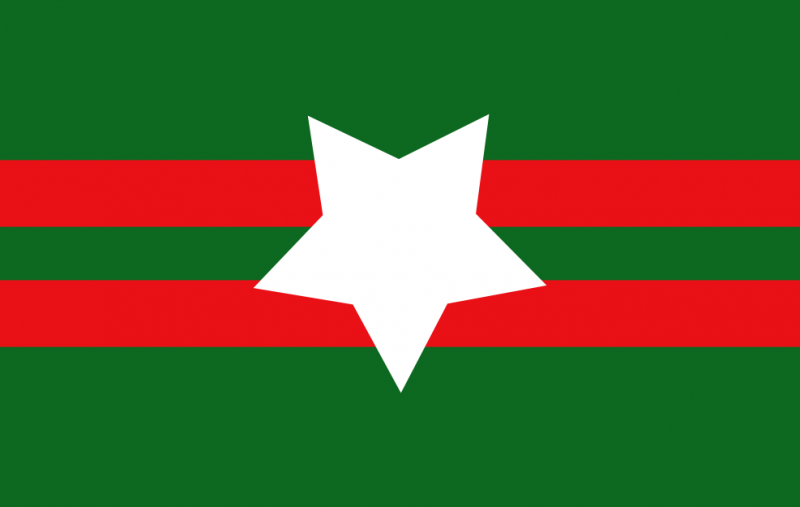The proposal is that the existing Standing Orders of the General Assembly be amended to read as follows, to bring them into line with the 2021 Constitution:
Quote1. Any citizen may propose a draft of a bill or of a resolution to the General Assembly, and leave it for discussion for as long as they want, revising it as often as they want. A Bill is a proposal for a new law, or for an amendment to an existing law; a Resolution is a simple statement of the views of the General Assembly with no legal effect, a ratification of an election or the confirmation of a nomination.
2. Once they like it, they submit the draft for official publication. An officially published draft of a bill or of a resolution shall be denoted by the word PROPOSAL: at the beginning of the subject line.
3.1 Once officially published, citizens have 7 days to officially publish an amendment to the bill. The Bill may go directly to a FINAL VOTE if all citizens indicate that they have no amendments for the bill in question. Any amendment shall be published in the same thread as the original bill, and be denoted by the word AMENDMENT: at the beginning of the subject line.
3.2 Seven days after publication of the draft, the Túischac'h calls for a vote on the amendments in a new thread denoted by the words AMENDMENTS VOTE: at the beginning of the subject line, and last for seven days. At the end of the seven days, if for each amendment more për than contrâ votes have been recorded, it shall be passed. Otherwise, the amendment shall not be passed.
4. Once all of the amendments have been settled and applied, the Túischac'h calls for a vote on the final version of the bill, which lasts for 7 days. A final call for a vote shall be published in a new thread denoted by the words FINAL VOTE:. at the beginning of the subject line. At the end of the seven days, if more për than contrâ votes have been recorded in the case of a regular Bill or Resolution, or at least twice as many per as contra votes in the case of an amendment to this Constitution, the bill or resolution shall be passed. Otherwise, the bill or resolution shall not be passed.
5. In any voting phase, all the votes of the citizens shall be open and public. A citizen may change his or her vote at any time up until the final voting deadline.
6. Votes of Confidence, as provided in Fiôvâ Const. § 10.2 or Fiôvâ Const. § 10.3, shall proceed in the same way as resolutions, except that there shall be no amendment phase, and shall proceed directly to a final vote (as in section 4 above) as soon as a citizen officially submits a request, in a thread denoted by the word VOC: at the beginning of the subject line, to the General Assembly. Votes of confidence shall end as soon as all citizens have cast their vote or seven days have passed, whichever comes first. Votes of confidence may contain no provisions not directly related to confidence in the official in question.
7. Elections of the Túischac'h and Secretary of State, as provided in Fiôvâ Const. § 3.1 or Fiôvâ Const. § 9.1, shall proceed in the same way as ordinary resolutions, except that there shall be no amendment phase, and proceed directly to a final vote (as in section 4 above) as soon as a citizen officially submit a candidature, in a thread denoted by the word CANDIDATURE: at the beginning of the subject line, to the General Assembly.
8. Confirmations of judicial nominations, as provided in Fiôvâ Const. § 8.1, shall proceed in the same way as ordinary resolutions, except that there shall be no amendment phase, and proceed directly to a final vote (as in section 4 above) as soon as the Cunstavál's decree of nomination, in a thread denoted by the word NOMINATION: at the beginning of the subject line, it is published. Voting on Confirmations shall end as soon as all citizens have cast their vote or seven days have passed, whichever comes first.
9. Once a bill has been passed, the Túischac'h shall submit it to the Cunstavál for promulgation as law, in accordance with Fiôvâ Const. § 7.2. A resolution does not need to be presented to the Cunstavál.
10. Any citizen may propose a question for formal answer to the Praisidïeu or to any other Minister. Such a question shall be denoted by the word QUESTION: at the beginning of the subject line. If the member of the Government so addressed is a citizen, they shall reply personally within seven days; if not, then the Praisidïeu shall transmit a reply on their behalf.
11. The Túischac'h, or one of his deputies, is responsible for enforcing these Standing Orders, and for keeping a civil and appropriate tone of debate in the General Assembly.
12. All citizens shall address their statements in the General Assembly to the Túischac'h.

